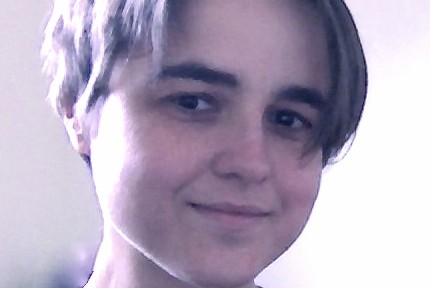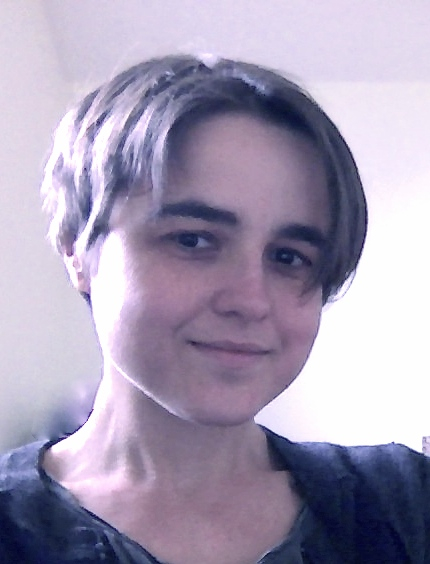As part of Birkbeck’s Discover our research activity, Dr Heike Bauer of the Department of English and Humanities writes about her current research activity.
What is your current topic of research?
I’m working on an AHRC-funded book, The Hirschfeld Archives: Violence, Death, and Modern Queer Culture. It examines how attack and persecution shaped the development of a collective sense of same-sex identity in the first half of the twentieth-century
Why did you choose this topic?
The book addresses a gap in the scholarship: the realization that, while we know of many lives which have ended tragically as a result of legal persecution, violent attack or the inability to cope with heteronormative social and emotional pressures, we know surprisingly little about the traumatic impact of these deaths on the shaping of modern queer culture.
I have come to this realization via a chance encounter in the archive. In my previous book, English Literary Sexology, I explored the emergence a modern vocabulary of sex – words such as homosexuality and heterosexuality – and how the new ideas were transmitted from German science into English literary culture.
It was during the completion of this project that I first came across the work of Magnus Hirschfeld (1868-1935), a hugely influential Jewish doctor and reformer. He is best known today for his homosexual rights activism, foundational studies of transvestism and opening of the world’s first Institute of Sexual Sciences in Berlin in 1919. I found, however, that Hirschfeld was also a chronicler of hate and violence against people who were figured to be, in his words, ‘different from the others’ because of their gender or sexual desire.
He wrote, for instance, about the trial and death of Oscar Wilde, and how it affected the men who identified with Wilde; and he collected the first statistical figures on female and male homosexual suicide, arguing that persecution and social denial played a significant role in why (some of these) people felt their lives were unliveable. The realisation that these writings have yet to be explored was the starting point for The Hirschfeld Archives.
What excites you about this topic?
This is the first study to examine narratives about queer death, suicide and injury for the insights they provide into how such suffering was understood at the time. There is a thrill – as well as a sense of responsibility – in working with texts and images that have been overlooked or forgotten.
What is challenging about the research?
Arguing that negative experiences, as much as affirmative politics and subculture formation, shaped modern queer culture, the book addresses a critical paradox: that despite political gains and related social transformations, queer lives all too often remain precarious, subject to attack and rejection, because they do not fit real and imagined norms about what it means to live in a certain time and place, and in a body whose gender and desires challenge powerful but often difficult-to-bring-into-view social norms. The challenge in presenting this research is to make sure that it cannot be misconstrued: just because there is violence in queer history does not mean that queerness equates misery. You might be surprised about how important it is even today to be clear about this point.
What is your favourite thing about your work?
The history of sexuality is today a thriving academic field. I come to it from a feminist perspective and a background in literary and culture studies. I enjoy being able to test and develop my ideas in dialogue with colleagues from other disciplines. My most recent book, for example, a collection of essays entitled Sexology and Translation: Cultural and Scientific Encounters Across the Modern World, brings together literary scholars, historians, translation scholars and experts in gender studies who work on sexual cultures in Europe, Peru, Asia, and the Middle East. It is a real privilege to be part of such collaborations. I similarly enjoy working with my PhD students, and supporting the development of projects that can make a real intervention in existing scholarship.
What are the potential impacts of your research on everyday life?
The humanities are vital to making sense of the world, laying bare the often hidden norms that govern society, and critically and creatively expanding not only what (we think) we know, but also how we know it, and to what the effect. In terms of my own project, there are obvious benefits to developing a better understanding of LGBTIQ history. As part of the AHRC Fellowship, for instance, I discussed my research with health professionals in a workshop on violence in queer and trans lives. But as the research comes to a close, I think it’s fitting to turn around the question and also consider the impact of everyday life on my research. Discussing work-in-progress with non-academic audiences has been a vital part of the development of this project, challenging me to be clearer about the claims I made, and reminding me that the sorrows and joys of queer history are very much alive today.
Find out more
- Discover our research
- Department of English and Humanities
- School of Arts
- Follow Heike on Twitter (@Heike_Bauer) and read her blog: https://violentworldofdifference.wordpress.com



he humanities are vital to making sense of the world, laying bare the often hidden norms that govern society, and critically and creatively expanding not only what (we think) we know, but also how we know it, and to what the effect.